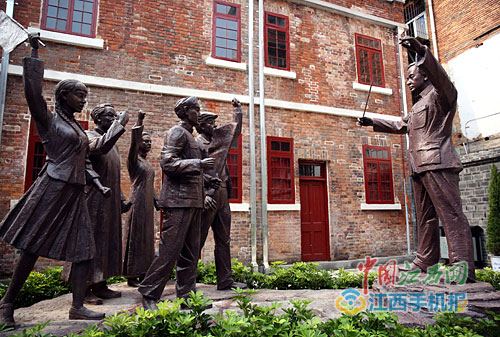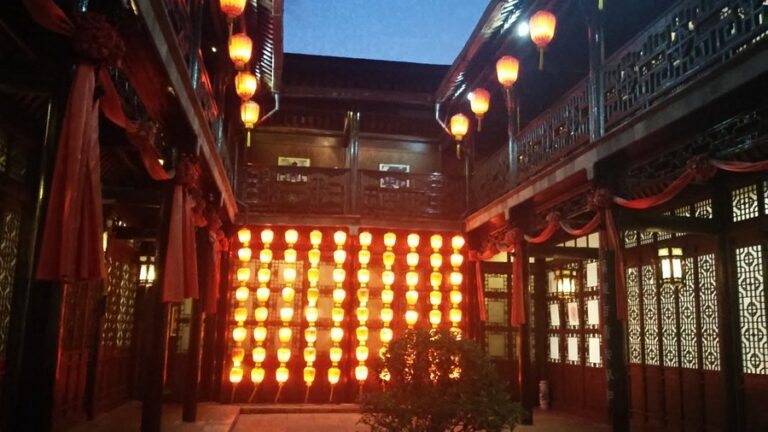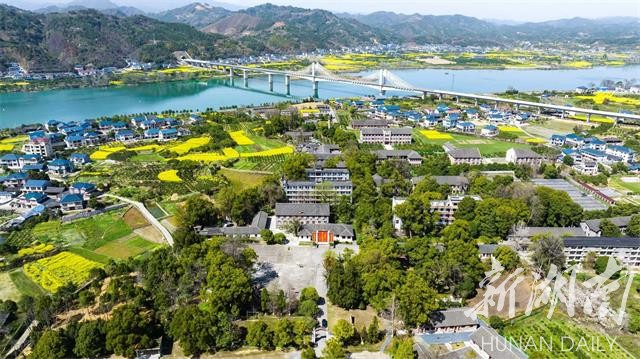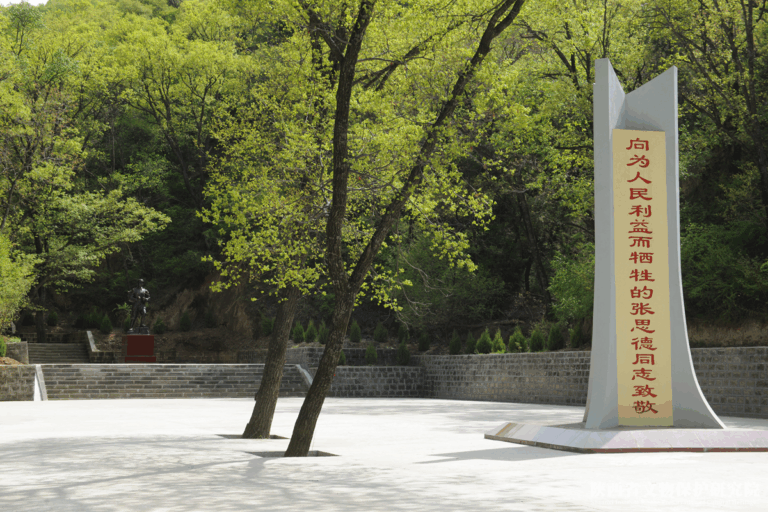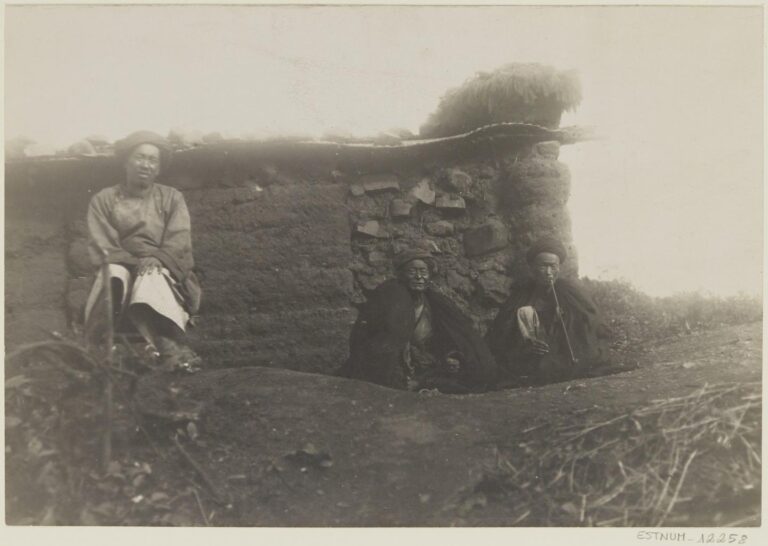Unveiling Jiangmen Situmeitang Guju: Your Ultimate Travel Guide
An Essential Guide to Visiting Jiangmen Situmeitang Guju
In This Guide
- An Essential Guide to Visiting Jiangmen Situmeitang Guju
- The Rich History of Jiangmen Situmeitang Guju
- Main Highlights: What to See at Jiangmen Situmeitang Guju
- Planning Your Visit: A Practical Guide
- Tickets, Hours, and Booking
- How to Get There
- Local Cuisine and Accommodation
- Frequently Asked Questions
- Final Thoughts on Your Trip
Nestled in the heart of Jiangmen, Guangdong Province, the historic Situmeitang Guju (司徒美堂故居) stands as a poignant reminder of the region’s rich cultural heritage and its deep ties to the overseas Chinese community. This ancestral home belonged to Situmeitang, a prominent figure in Chinese history, who played a vital role in the Chinese diaspora and the nation’s revolutionary movements during the tumultuous early 20th century. His life, a tapestry woven with stories of resilience and patriotism, resonates with visitors seeking to understand both the local and global impact of Chinese emigrants.
The architecture of Situmeitang Guju is a splendid representation of Lingnan-style traditional residences, featuring intricate wooden carvings and elegant tiled roofs that whisper tales of the past. As you step into this historical gem, you are not merely entering a house; you are embarking on a journey through time, exploring the life and legacy of a man who devoted himself to the welfare of his community, both in China and abroad.
Today, the site functions not only as a museum but also as a cultural hub, where educational programs and commemorative events breathe new life into Situmeitang’s story. The ongoing revitalization efforts aim to enhance the visitor experience and preserve the historical significance of this esteemed residence, making it a must-visit destination for those interested in the interplay of history, culture, and the enduring spirit of the Chinese diaspora. Whether you are a history buff, a culture enthusiast, or simply curious about the narratives that shape our world, Situmeitang Guju offers a unique lens through which to view the past and its lasting influence on the present.
The Rich History of Jiangmen Situmeitang Guju
The Jiangmen Situmeitang Guju, located in the heart of Kaiping City, Guangdong Province, is a significant historical residence that reflects the life and contributions of one of China’s prominent overseas Chinese leaders, Situmeitang (司徒美堂). Born in 1868 in a modest farming family, Situmeitang’s journey began when he emigrated to the United States at the age of 12. His early experiences in the bustling Chinese immigrant communities of America shaped his future as a leader and activist.
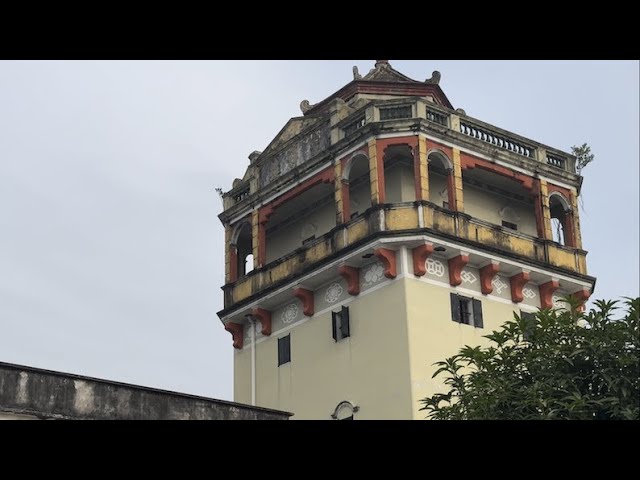
Jiangmen Situmeitang Guju.
Upon arriving in the U.S., Situmeitang quickly engaged in community affairs, becoming a member of the Hongmen Society, a Chinese secret society that played a crucial role in supporting revolutionary activities against the Qing Dynasty. By the late 19th century, he had established several organizations aimed at uniting the Chinese diaspora and addressing the injustices faced by immigrants. Notably, he founded the Anliang Hall in Boston, which became a significant platform for organizing Chinese Americans in support of revolutionary efforts led by Sun Yat-sen.
Situmeitang’s activism extended beyond mere organization; he was a vital financial supporter of revolutionary causes, particularly during the tumultuous years leading up to and during the Second Sino-Japanese War. His efforts in the 1930s were pivotal in mobilizing resources from the overseas Chinese community to support the war against Japan, raising over $14 million through various fundraising initiatives.
The Situmeitang Guju itself is a traditional three-corridor, two-room, one-hall structure that exemplifies the architectural style of the late Qing Dynasty. Its construction reflects the cultural heritage of the region and the traditional lifestyles of the local population. The house has undergone several renovations since the 1980s, emphasizing the importance of preserving cultural heritage while adapting to contemporary needs. In 1989, it was designated a provincial cultural heritage site, and later, in 2019, it was recognized as a national key cultural relic protection unit.
In recent years, efforts have been made to enhance the site’s role as a cultural and educational hub. The local government has invested in restoring the residence and improving its facilities to accommodate visitors, including students and researchers interested in the history of overseas Chinese contributions to modern China. Additionally, the establishment of the Situmeitang Memorial Hall is planned to further commemorate Situmeitang’s legacy and educate the public about his significant role in Chinese history.
Today, the Situmeitang Guju is not only a historical site but also a symbol of the enduring spirit of the Chinese diaspora, showcasing the journey of a young immigrant who rose to prominence through dedication to his community and country. It serves as a poignant reminder of the interconnectedness of China’s past and present, as well as the vital contributions of its overseas citizens.
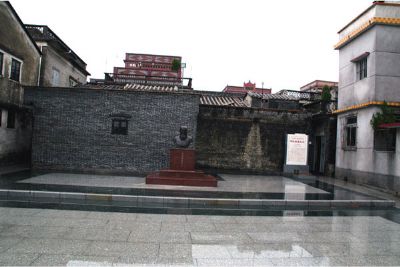
Jiangmen Situmeitang Guju.
Main Highlights: What to See at Jiangmen Situmeitang Guju
Nestled in the heart of Kaiping, Jiangmen Situmeitang Guju (司徒美堂故居) stands as a monument to the legacy of one of China’s most revered overseas Chinese leaders, Situmeitang (司徒美堂). The significance of this historic residence extends beyond its architectural elegance; it represents a pivotal chapter in the story of Chinese expatriates and their contributions to national history.
Architectural Charm
The house is a classic example of Lingnan architecture, characterized by its three corridors, two rooms, and a hall, all crafted from traditional red bricks and adorned with a tile roof. The structure has been meticulously preserved, allowing visitors to step back in time and experience the living conditions and cultural aesthetics of the late Qing Dynasty. The layout not only reflects the architectural style of the era but also embodies the familial and communal values integral to the culture of overseas Chinese communities.
A Legacy of Leadership
Situmeitang, originally named Situyian, was born in 1868 in Kaiping and later emigrated to the United States, where he became a prominent figure in the Chinese community. His advocacy for Chinese rights and support for revolutionary efforts against imperial rule made him a key player in the political landscape of his time. The memorial house serves as a testament to his life, featuring exhibits that chronicle his journey from a humble farmer to an influential leader who rallied overseas Chinese support for China’s struggles, particularly during the anti-Japanese war.
Cultural Significance
Recognized as a national key cultural relic protection unit, the Situmeitang Guju is not just a museum; it is an educational hub. The site offers various programs and activities aimed at promoting patriotism and cultural heritage. In recent years, Kaiping has hosted numerous events, such as exhibitions and performances, to commemorate Situmeitang’s contributions and to engage the community and visitors with his enduring legacy.
Surrounding Attractions
Visitors to the Situmeitang Guju can also explore other nearby cultural sites, such as the historic Chikan Town and the famous Kaiping watchtowers. The integration of these locations into a broader historical and cultural tour provides a rich context for understanding the life and achievements of overseas Chinese and their impact on both local and national levels.
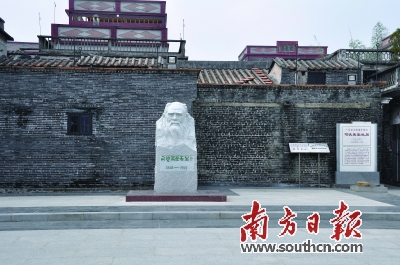
Jiangmen Situmeitang Guju.
Future Developments
Plans are underway to further enhance the visitor experience at the Situmeitang Guju. Initiatives include the development of a dedicated memorial hall, which aims to deepen the understanding of Situmeitang’s influence and to provide a platform for ongoing discussions about the contributions of overseas Chinese to modern China.
In essence, a visit to Jiangmen Situmeitang Guju is not just a journey into the past; it is an opportunity to appreciate the resilience and spirit of the Chinese diaspora, making it a must-visit landmark for anyone interested in China’s rich cultural history.
Planning Your Visit: A Practical Guide
Visiting Jiangmen Situmeitang Guju (司徒美堂故居), the historic residence of the renowned Chinese-American leader Situmeitang, offers a rich cultural and historical experience. Here’s everything you need to know for a practical visit.
Location and Access
Situmeitang Guju is located in the town of Chikan, Kaiping City, Guangdong Province, China. The address is No. 6, Fourth Lane, Niululi, Zhonggu Village, Chikan Town. The site is easily accessible by public transportation, including buses and taxis, which frequently run from major cities in the region, including Jiangmen and Guangzhou.
Opening Hours
The museum is typically open from 9:00 AM to 5:00 PM daily. However, it is advisable to check the official website or local tourism information for any seasonal changes or special holiday hours before your visit.
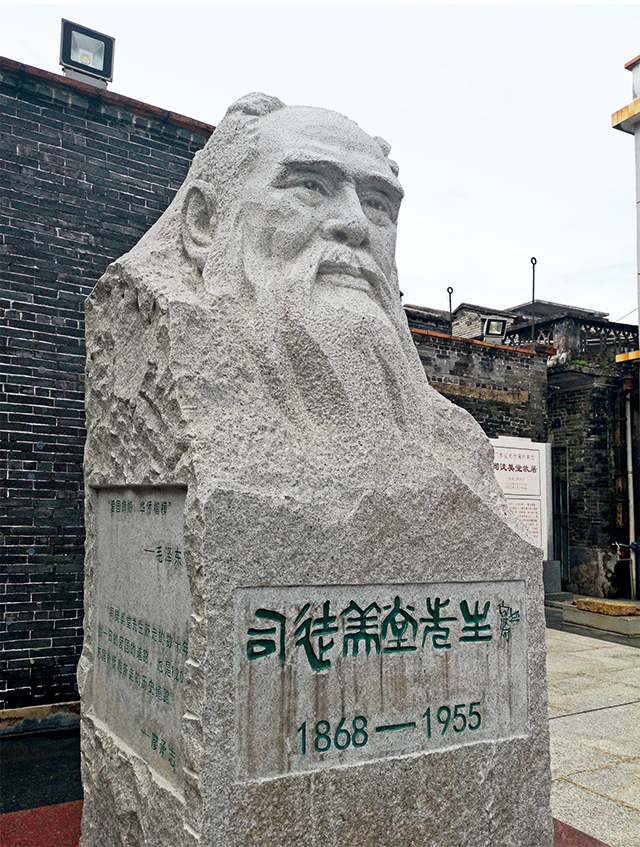
Jiangmen Situmeitang Guju.
Admission Fees
As of the latest updates, entry to Situmeitang Guju is free. However, donations are welcomed to assist with the upkeep and preservation of the site. Guided tours may incur a nominal fee, providing visitors with an in-depth understanding of the historical significance of the residence.
Guided Tours
For an enriching experience, consider joining a guided tour. Local guides provide insights into Situmeitang’s life, his contributions to Chinese history, and the architectural features of the residence, which reflect the unique Lingnan (Cantonese) style. Tours often include interactive exhibits and multimedia presentations that enhance the learning experience.
Facilities and Amenities
- Visitor Center: A small visitor center provides informational brochures and souvenirs related to the history of Situmeitang and the local culture.
- Rest Areas: There are benches and shaded areas for visitors to rest, making it a comfortable place for families.
- Accessibility: The site is wheelchair accessible, ensuring that all visitors can enjoy the historical ambiance.
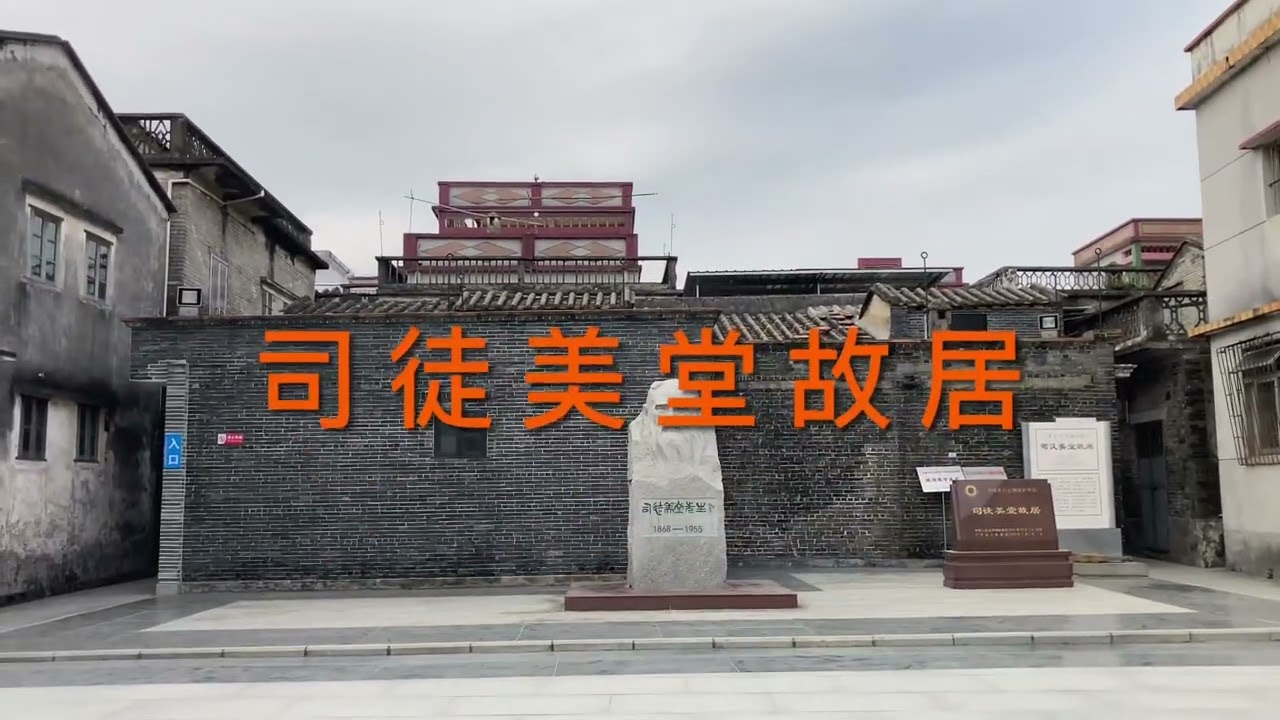
Jiangmen Situmeitang Guju.
Nearby Attractions
While visiting Situmeitang Guju, consider exploring these nearby sites:
– Chikan Ancient Town: Just a short distance away, this historic town features well-preserved buildings and offers a glimpse into the local culture.
– Kaiping Diaolou: A UNESCO World Heritage Site, these watchtowers showcase unique architectural styles and offer stunning views of the surrounding area.
– Local Cuisine: Enjoy traditional Cantonese dishes at eateries in the vicinity, where you can sample local specialties such as dim sum and seafood.
Tips for Visitors
- Language: While many signs are in English, learning a few basic Mandarin phrases can enhance your interaction with local guides and residents.
- Weather Considerations: Guangdong’s climate can be quite humid, especially in summer. Dress comfortably, wear sunscreen, and stay hydrated during your visit.
- Photography: Photography is allowed, but be respectful of the exhibits and other visitors.
Cultural Etiquette
As a historical site, Situmeitang Guju is a place of respect. Visitors are encouraged to:
– Maintain a quiet demeanor to preserve the solemn atmosphere.
– Avoid touching artifacts unless permitted.
– Follow the instructions of guides and staff for the safety and preservation of the site.
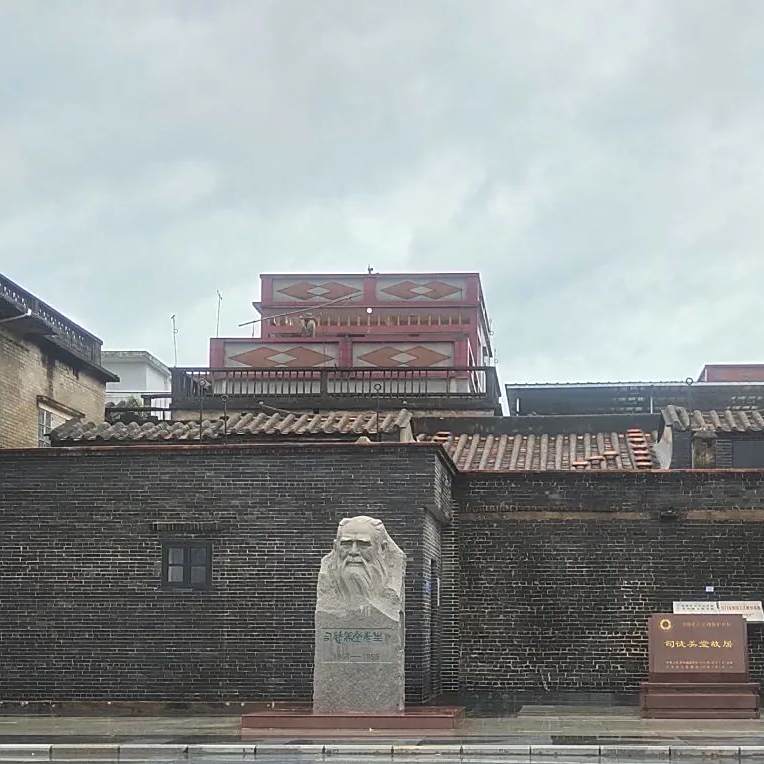
Jiangmen Situmeitang Guju.
By following this practical guide, you’ll be well-prepared to explore the fascinating history and cultural significance of Jiangmen Situmeitang Guju. Enjoy your visit!
Tickets, Hours, and Booking
Visiting the Jiangmen Situmeitang Guju (司徒美堂故居) is an enriching experience that connects you to the legacy of a prominent figure in Chinese history. Located in Kaiping City, this historical residence offers insights into the life of Situmeitang (司徒美堂), a renowned overseas Chinese leader and one of the founders of the Chinese League. Here’s what you need to know about ticketing for your visit:
Ticket Information
-
Admission Fee: Entry to the Situmeitang Guju is free of charge. This encourages more visitors to explore the rich cultural heritage of the site without any financial barriers.
-
Guided Tours: Although the admission is free, we highly recommend joining a guided tour to enhance your experience. These tours may have a nominal fee, which varies based on the guide’s expertise and the duration of the tour. It’s advisable to inquire in advance or check local tourism information for details.
-
Opening Hours: The site is typically open to the public from 9:00 AM to 5:00 PM daily. It’s best to visit during these hours to fully appreciate the exhibits and historical ambiance.
-
Group Visits: For groups planning a visit, prior arrangements can be made. Contact the local tourism office or the management of the site to ensure a smooth experience, especially if you’re bringing a larger group.
-
Educational Programs: The residence often hosts educational programs and workshops, particularly aimed at students and cultural enthusiasts. These may require advance booking and could involve a small fee.
-
Facilities: The site is equipped with basic amenities including restrooms and informational displays. While the residence itself showcases Situmeitang’s life and contributions, nearby facilities may offer refreshments and souvenirs.
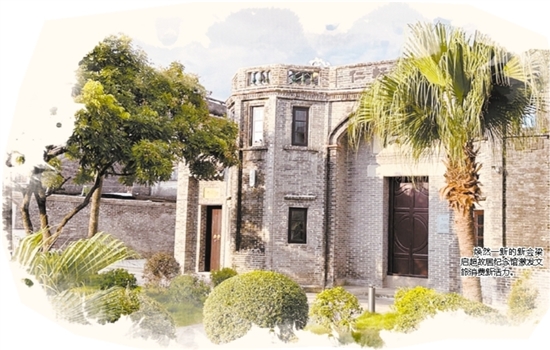
Jiangmen Situmeitang Guju.
Getting There
Situated in the charming town of Chikan, the Situmeitang Guju is easily accessible by public transport or private vehicle. Ensure to check local transport options to plan your journey effectively.
Visiting the Jiangmen Situmeitang Guju is not just about seeing a historical site; it’s about connecting with the narratives that shaped modern China. Enjoy your visit!
How to Get There
Getting to Jiangmen Situmeitang Guju (司徒美堂故居) is relatively straightforward, thanks to the city’s well-developed transportation network. Whether you are traveling from nearby cities or within Jiangmen itself, there are several options available to make your journey smooth and enjoyable.
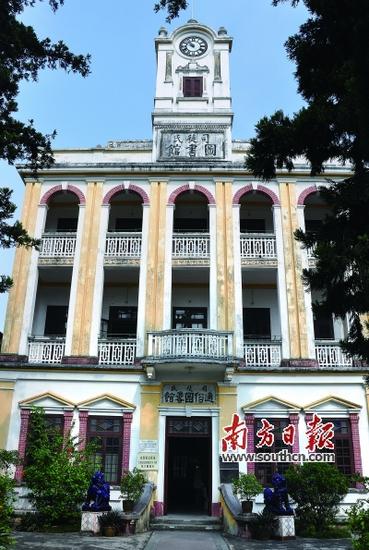
Jiangmen Situmeitang Guju.
By Air
The closest major airport to Jiangmen is Guangzhou Baiyun International Airport (CAN), located approximately 100 kilometers away. From the airport, you can take a high-speed train to Jiangmen, which is the fastest and most convenient option. The train journey takes about an hour, and trains run frequently throughout the day.
By Train
Jiangmen Railway Station serves as a significant hub for travelers. High-speed trains connect Jiangmen with major cities in Guangdong Province, such as Guangzhou, Shenzhen, and Dongguan. The station is conveniently located in the city center, making it easy to access local transportation options upon arrival. Once you arrive at Jiangmen Railway Station, you can take a taxi or a local bus to reach Situmeitang Guju.
By Bus
If you prefer traveling by bus, Jiangmen has an extensive bus network that connects to various cities and towns in the region. Long-distance buses from Guangzhou and other nearby cities arrive at Jiangmen Bus Station. From the bus station, you can take a taxi or ride-share service directly to Situmeitang Guju.
Local Transportation
Within Jiangmen, public transportation is accessible and affordable. Buses are available that can take you close to Situmeitang Guju. However, for the most convenience, consider using a taxi or a ride-hailing app like Didi Chuxing, which is widely used in China.
Directions to Situmeitang Guju
Once you are in Jiangmen, reaching Situmeitang Guju is easy. The site is located in the neighboring Kaiping District, specifically in the town of Chi Kan. If you are coming from the city center, it is approximately a 20-minute drive. Simply enter the destination into your GPS or ask your driver for assistance.
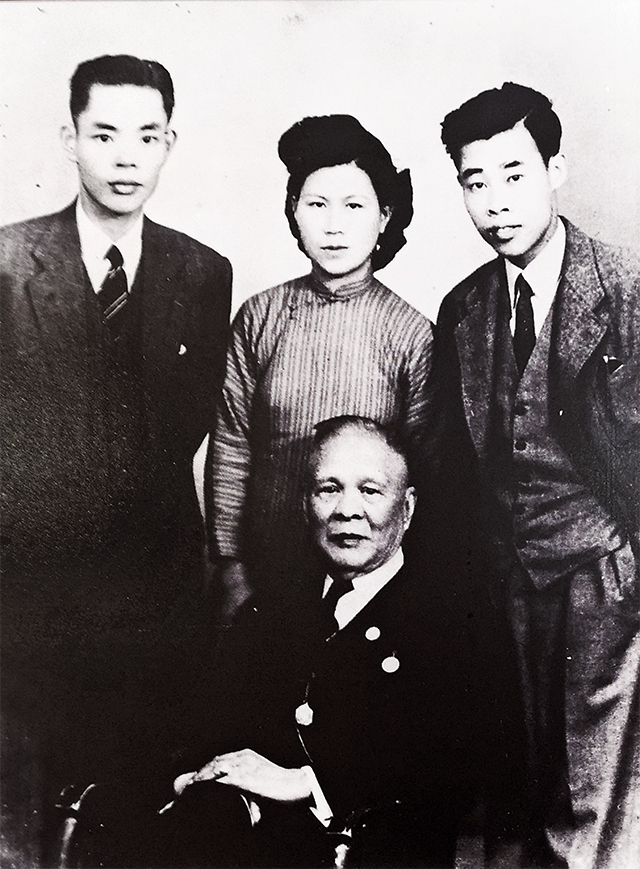
Jiangmen Situmeitang Guju.
Parking Facilities
If you are driving to Situmeitang Guju, there are parking facilities available nearby. Ensure to check local signage and regulations regarding parking to avoid any fines.
Conclusion
With various transportation options at your disposal, visiting Jiangmen Situmeitang Guju is an achievable and enjoyable experience. Whether you arrive by air, train, or bus, the site is well-connected and easily accessible, allowing you to immerse yourself in the rich history and culture of this notable landmark.
Local Cuisine and Accommodation
When visiting the historic Jiangmen Situmeitang Guju (司徒美堂故居), travelers will find themselves immersed not only in the rich history of the renowned figure Situmeitang but also in the delicious local cuisine and comfortable accommodations that the region has to offer.
Culinary Delights
Jiangmen is celebrated for its diverse culinary scene, heavily influenced by its rich agricultural surroundings and coastal proximity. Here are some must-try dishes and dining spots to savor during your visit:
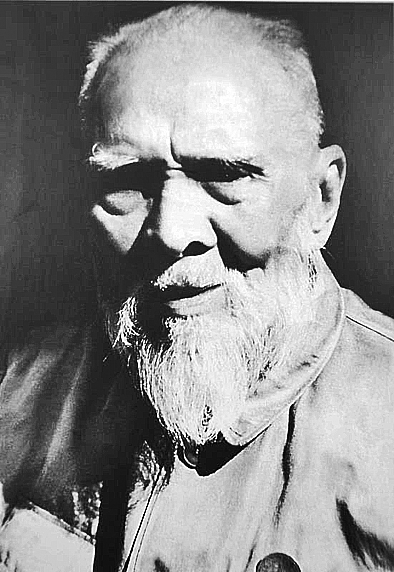
Jiangmen Situmeitang Guju.
-
Chaozhou Cuisine: A highlight of the local food scene, Chaozhou cuisine is known for its fresh seafood and delicate flavors. Try local specialties like braised oyster or stir-fried shrimp at restaurants such as Chaozhou Ren located near the Situmeitang Guju.
-
Dim Sum: No visit to Jiangmen would be complete without indulging in dim sum. Dai Pai Dong offers an authentic experience where you can enjoy a variety of steamed buns, dumplings, and pastries in a bustling atmosphere.
-
Wonton Noodles: For a quick and satisfying meal, head to Wonton House, where you can sample perfectly cooked wontons in a savory broth, accompanied by fresh greens.
-
Local Snacks: Street food lovers should not miss out on Jiangmen’s traditional snacks, such as fried dough sticks and steamed rice rolls available from local vendors. The Jiangmen Night Market is the perfect place to explore these delights.
Accommodation Options
For a restful stay near the Situmeitang Guju, visitors can choose from a range of accommodations that cater to different preferences and budgets:
-
Heritage Hotel: Experience the charm of Jiangmen by staying at a heritage hotel that reflects the city’s rich history and culture. The Jiangmen Cultural Inn offers beautifully decorated rooms with traditional decor, providing a unique glimpse into the local lifestyle.
-
Modern Hotels: For those seeking contemporary comforts, Hilton Garden Inn Jiangmen provides modern amenities, including a fitness center and on-site dining. Its convenient location offers easy access to both the Situmeitang Guju and local attractions.
-
Guesthouses: For a more intimate experience, consider booking a stay at a local guesthouse. Situmeitang Guesthouse not only offers comfortable rooms but also personal insights into the history of the area from the friendly hosts.
-
Budget Accommodation: Backpackers or budget travelers can find affordable options at Hostel Jiangmen, which provides basic but clean and comfortable accommodations, making it a great base for exploring the city.
With a blend of authentic flavors and welcoming accommodations, your visit to Jiangmen Situmeitang Guju will be both enriching and enjoyable. Whether you’re indulging in local delicacies or resting in a cozy hotel, the region promises an unforgettable experience.
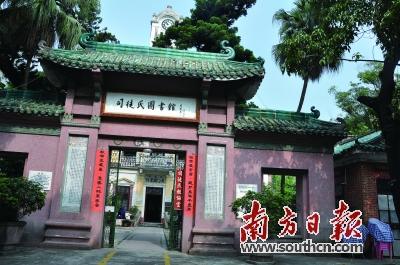
Jiangmen Situmeitang Guju.
Frequently Asked Questions
Frequently Asked Questions about Jiangmen Situmeitang Guju (司徒美堂故居)
1. What is Jiangmen Situmeitang Guju?
Jiangmen Situmeitang Guju, also known as the former residence of Situmeitang, is a historical site located in Kaiping City, Guangdong Province. It is the home of the prominent Chinese-American leader Situmeitang, who played a significant role in Chinese history and the overseas Chinese community.
2. Why is Situmeitang significant?
Situmeitang, originally named Xiangyi, was a key figure in the Chinese-American community and a founding member of the Chinese League. He contributed significantly to the anti-Japanese war efforts and was involved in various patriotic activities, making him a celebrated figure in Chinese history.
3. What can visitors expect to see at the residence?
Visitors can explore the traditional Lingnan architectural style of the residence, which features a typical layout with three corridors and two rooms. The site includes exhibits that showcase Situmeitang’s life, his contributions, and historical artifacts related to his legacy.
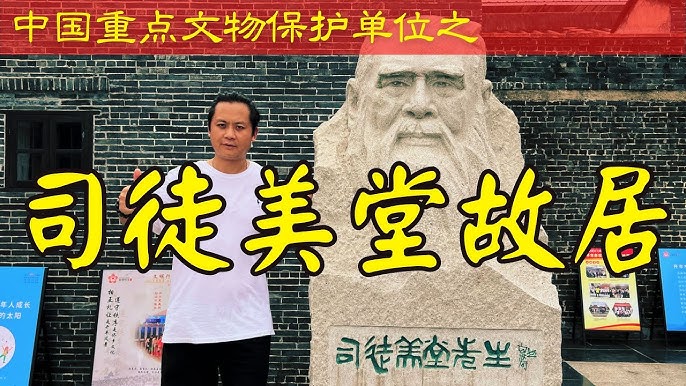
Jiangmen Situmeitang Guju.
4. Is there an admission fee to visit the site?
Currently, the Situmeitang Guju is free to enter, allowing visitors to appreciate the cultural heritage without any cost. However, it’s advisable to check for any updates on potential fees or special exhibitions.
5. How can I get to Jiangmen Situmeitang Guju?
The residence is located in the town of Chikan, Kaiping City, Guangdong Province. It is accessible by public transportation, including buses and taxis. For those driving, there are parking facilities nearby.
6. Are there any guided tours available?
Yes, guided tours are often available, providing visitors with in-depth information about Situmeitang’s life and the historical context of the residence. It’s recommended to inquire about guided tours upon arrival or check local tourism websites.
7. What facilities are available for visitors?
The site includes basic visitor facilities such as restrooms and informational signage. While there are no extensive amenities like restaurants or shops directly at the residence, the surrounding area in Chikan offers local dining and shopping options.
8. Is Situmeitang Guju accessible for those with mobility issues?
The site is primarily an old residence with traditional architecture, which may present challenges for those with mobility issues. It is advisable to check in advance for any accessibility accommodations or alternatives for visiting.
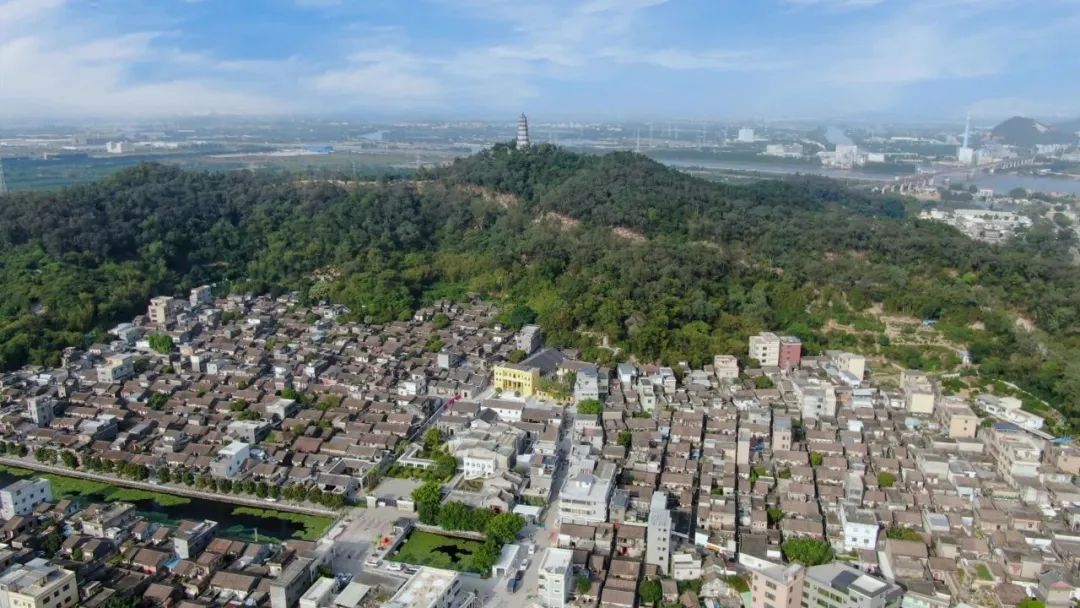
Jiangmen Situmeitang Guju.
Final Thoughts on Your Trip
As you explore Jiangmen Situmeitang Guju, you are not merely visiting a historic residence; you are stepping into a living narrative that bridges the past with the present. This site, dedicated to one of China’s prominent overseas Chinese leaders, Situmetang, serves as a testament to the enduring spirit of cultural heritage and community resilience.
The ongoing restoration and revitalization efforts reflect a commitment not only to preserve history but to enhance its relevance in today’s world. As you wander through the halls where stories of patriotism and leadership echo, consider the profound impact of cultural landmarks like this on future generations. They are not just relics of the past, but vibrant centers for education, inspiration, and cultural exchange.
Engaging with Jiangmen Situmeitang Guju invites you to appreciate the rich tapestry of Chinese history and the invaluable contributions of its diaspora. Each visit provides an opportunity to connect with these narratives, fostering a deeper understanding of identity and community. As you leave, carry with you the stories, lessons, and inspiration gleaned from this unique cultural gem—an emblem of pride that shines brightly in Jiangmen’s illustrious heritage.
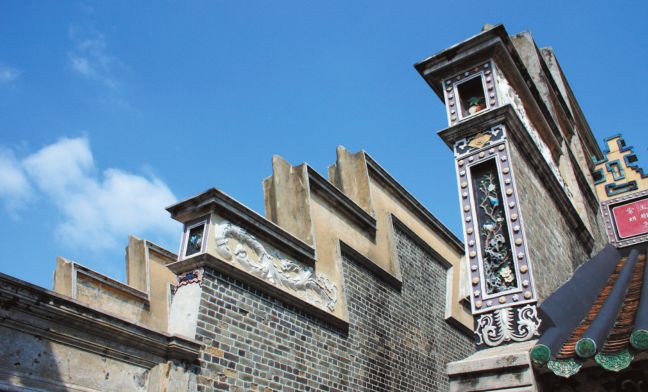
Jiangmen Situmeitang Guju.
